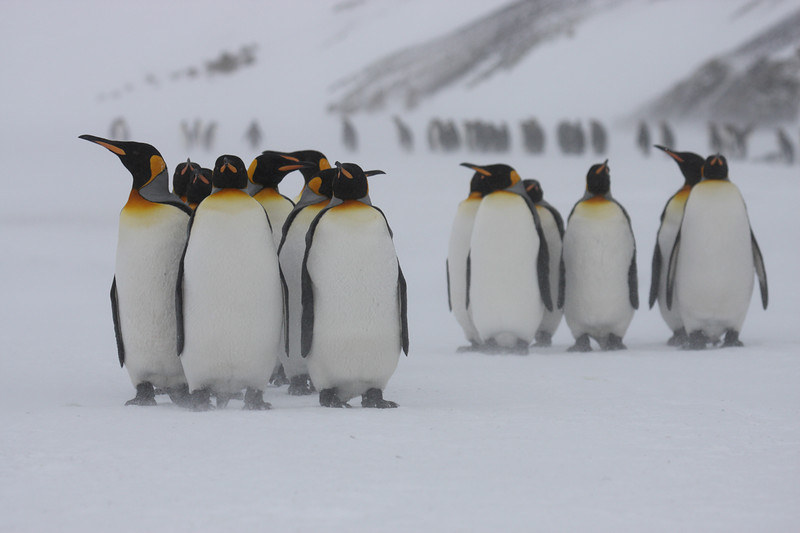The New York Times not only blew it on their news story about Jean Lafitte, Louisiana, but also on a story about King Penguins the paper obviously hoped would help inspire people to group Happy Feet about human-caused climate change.
Citing a study published today in Nature Climate Change, the Grey Lady states 70 percent of the 1.6 million estimated breeding pairs of king penguins could be affected in this century. That King Penguin habitats examined in places such as Crozet and Prince Edward Islands, in the Indian Ocean south of Madagascar are shrinking due to climate change and it is getting harder for them to find food due to warmer weather.
The Times quotes the manuscript’s leading scientist Dr. Emiliano Trucci out of Oslo, Norway who says the King Penguins will need to migrate elsewhere or the penguins will vanish. Fortunately, that seems to be what is happening and warmer climates actually help their colonies grow.
A manuscript published earlier this month in the journal Polar Biology reveals that the populations of King Penguins in colonies near South Georgia are actually on the rise and have been for the past 124 years. In fact, the study boldly proclaims in its opening paragraph:
While we do find evidence that glacial retreat may have increased suitable breeding habitat at some colonies and facilitated population expansion, glacial retreat is not associated with all of South Georgia’s growing populations. Local anomalies in sea surface temperature have increased in parallel with King Penguin population growth rate, suggesting that climate forcing may contribute to colony growth, but a complete explanation for the island’s rapidly growing King Penguin population remains unclear.
The New York Times again falls flat on its face for a clear case of advocacy journalism. The study itself they cite, while notable, is flawed due to its only focusing on one or a few geographic areas and does not take into account King Penguin colony growth resulting from warmer climates. Today’s King Penguin news story is, most likely, geared to give another basis that humans are the cause of climate change that affects the migratory patterns and habitats of species. Potentially even to push to classify King enguins as an endangered species.
